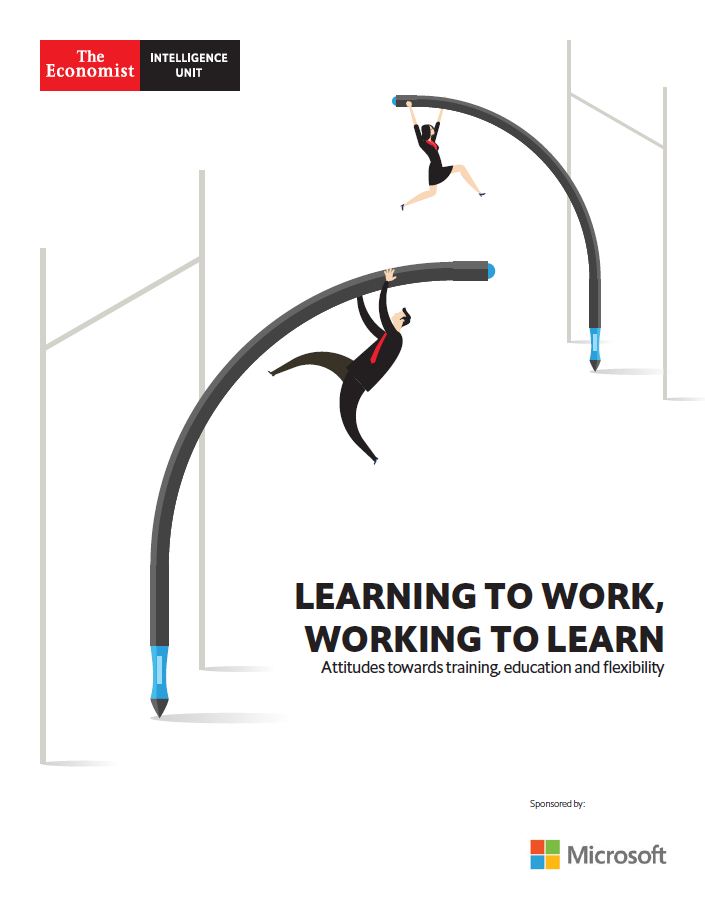The term “fourth industrial revolution” has become ubiquitous among those seeking to put a label on the constellation of changes occurring in the workplace and society as a whole, due to technology. Often discussed with equal parts trepidation and hope, this catch-all has fuelled debate about the skills that workers across a variety of fields will need to maintain—or learn for the first time—in order to stay relevant in the labour markets of tomorrow. Though no one can predict with complete certainty what will be the most in-demand skills in five, ten or 20 years’ time, many have proffered reasonable guesses, as well as a pathway to learning them.
With this context in mind, The Economist Intelligence Unit conducted a survey, sponsored by Microsoft Philanthropies Asia, of executives in five Asian countries: Australia, India, Japan, Singapore and South Korea. All respondents work in middle management and hail from one of three industries: retail, manufacturing or public sector/government. The survey asked them about their expectations for future skills-development and their views toward professional training and education.
The main findings are as follows:
- Creative thinking and problem solving will be the skills of most value to future workplaces.
- Only about one-fifth of respondents said they would be willing to spend five or more hours a week in training.
- Respondents understand that their industries are undergoing profound changes and will likely change more in future.
- Flexible working—in terms of “when” as well as “where”—is popular.
What is clear from our study is that concerted attention and action will be needed from a variety of stakeholders. Individuals will need to show initiative and drive in learning new skills. Companies should help accommodate lifelong education and flexible working where they can. Governments should facilitate this process on a macro-level, by providing incentives and encouragement for training. Only via a multi-faceted approach can large-scale job redundancies—and the potential unemployment that may follow—be avoided.
Download the report to learn more.






